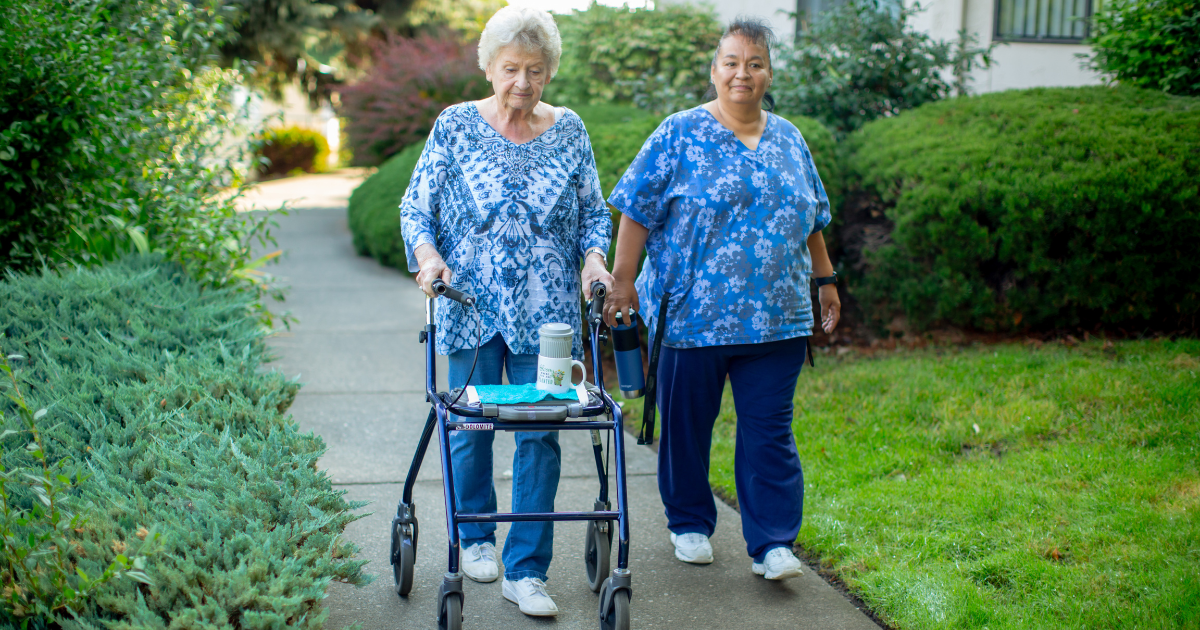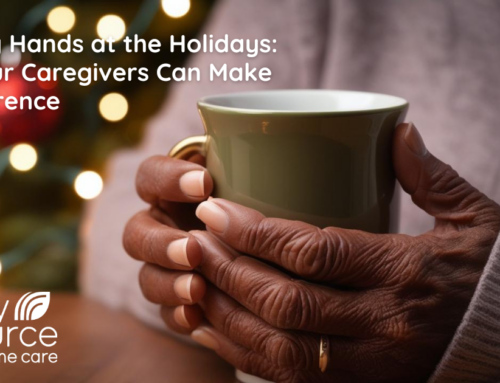As individuals age, maintaining a sense of autonomy becomes increasingly significant for psychological well-being and overall quality of life. Autonomy, a fundamental aspect of human dignity, encompasses the ability to make choices and decisions that align with personal values, desires, and preferences. At home elder care serves as a pivotal support system, allowing seniors to retain their independence and autonomy while receiving the necessary assistance to remain in their familiar environment safely. In this blog, we delve into the concept of autonomy, explore its relationship with psychological well-being based on the Self-Determination Theory, and highlight how at home elder care facilitates autonomy through various means.
Understanding Autonomy and Psychological Well-being
The Self-Determination Theory (SDT), proposed by psychologists Edward Deci and Richard Ryan, offers valuable insights into the factors that contribute to optimal psychological well-being. According to SDT, three basic psychological needs must be met for individuals to thrive: autonomy, relatedness, and competence.
- Autonomy: Central to the SDT framework, autonomy refers to the innate desire to be the causal agent of one’s own life and actions. It involves making choices that reflect one’s authentic self and having the freedom to pursue goals without external coercion. Self-awareness, locus of control, self-efficacy, social support, and level of freedom are key components that influence autonomy.
- Relatedness: Relatedness emphasizes the importance of meaningful connections and relationships with others. It involves feeling understood, cared for, and connected to a larger social context, which contributes to feelings of belonging and support.
- Competence: Competence entails feeling capable and effective in one’s actions and pursuits. It involves developing and mastering skills, achieving goals, and experiencing a sense of accomplishment.
For seniors receiving at home elder care, addressing these psychological needs is crucial for promoting well-being and maintaining a sense of fulfillment and purpose in life.
Supporting Autonomy in At Home Elder Care
- Self-awareness: At home elder care encourages self-awareness by providing opportunities for seniors to express their preferences, communicate their needs, and participate in decision-making regarding their care. Caregivers foster an environment where individuals feel heard and respected, promoting autonomy in daily choices and activities.
- Locus of control: By empowering seniors to take an active role in their care decisions, at home elder care reinforces an internal locus of control. Seniors are encouraged to voice their concerns, set personal goals, and participate in activities that align with their interests and values. This sense of agency cultivates optimism and confidence in one’s ability to influence outcomes, enhancing autonomy and well-being.
- Self-efficacy: At home elder care supports self-efficacy by providing opportunities for skill-building and personal growth. Caregivers assist seniors in engaging in activities that challenge and stimulate cognitive, physical, and social abilities, fostering a sense of mastery and accomplishment. As seniors experience success and progress, their confidence in their capabilities grows, further bolstering autonomy and independence.
- Social support: At home elder care promotes social connectedness by facilitating meaningful interactions and engagement with family, friends, and the community. Caregivers serve as companions, offering companionship, emotional support, and encouragement, which are vital for combating feelings of isolation and loneliness. Through social engagement, seniors feel valued and supported, enhancing their sense of autonomy and well-being.
- Level of freedom: At home elder care respects the autonomy of seniors by honoring their preferences and providing choices in daily routines and activities. Seniors have the freedom to structure their day according to their preferences, whether it involves participating in hobbies, pursuing personal interests, or enjoying leisure activities. By prioritizing individual autonomy, at home elder care fosters a sense of empowerment and self-determination.
Examples of Autonomous Behaviors in At Home Elder Care
- Personalized Care Plans: Seniors collaborate with caregivers to develop personalized care plans that align with their preferences, needs, and lifestyle. This may include choosing meal options, scheduling activities, and determining the level of assistance required for daily tasks.
- Decision-Making: Seniors are involved in decision-making processes regarding their health, living arrangements, and care services. They have the autonomy to make informed choices about medical treatments, home modifications, and end-of-life care preferences.
- Engagement in Activities: Seniors have the freedom to engage in activities that bring them joy and fulfillment, whether it’s gardening, painting, reading, or attending social gatherings. Caregivers support these interests and provide encouragement to pursue meaningful activities independently.
- Maintaining Independence: At home elder care prioritizes supporting seniors in maintaining their independence for as long as possible. This may involve implementing assistive devices, mobility aids, and safety measures to facilitate autonomy in daily living tasks while ensuring safety and well-being.
- Respecting Dignity: Caregivers uphold the dignity and autonomy of seniors by respecting their privacy, autonomy, and cultural preferences. Seniors are treated as partners in their care journey, fostering mutual respect and trust between caregivers and recipients of care.
Conclusion
At-home elder care plays a pivotal role in promoting autonomy, independence, and well-being among seniors. By addressing the psychological needs outlined in the Self-Determination Theory, at-home elder care supports self-awareness, locus of control, self-efficacy, social support, and freedom, which are essential for maintaining autonomy and quality of life. Through personalized care, meaningful engagement, and respect for individual preferences, at-home elder care empowers seniors to age in place with dignity, purpose, and autonomy. With over 30 locations across the Pacific Northwest ready to help elderly age in place, especially at our location in Bellevue, Washington, we are committed to providing compassionate and personalized care that enhances the overall well-being and quality of life for older adults in our communities. By prioritizing autonomy in elder care practices, we can make a meaningful difference in the lives of seniors and their families.
Sources:
Autonomy in Psychology: How to Take Control of Your Life (verywellmind.com)






